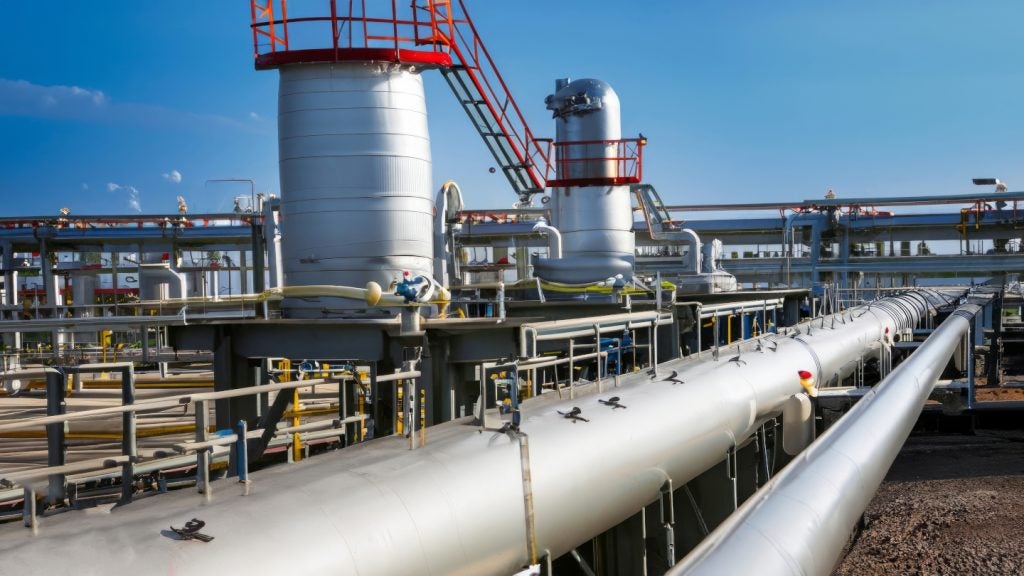
Oil leads as Offshore Technology lists the top five terms tweeted on exploration in May 2020, based on data from GlobalData’s Influencer Platform. The top tweeted terms are the trending industry discussions happening on Twitter by key individuals (influencers) as tracked by the platform.
1. Oil – 901 mentions
A year of carnage for oil companies, but with Saudi Arabia emerging as a winner during the pandemic, oil companies looking for bailout to offset the worst effects of the Covid-19 crisis, fewer rigs drilling, and indebted oil companies qualifying for funding in the US, were popularly discussed topics in May. According to an article shared by Jason Bordoff, a professor of professional practice and the founding director of the Center on Global Energy Policy, Saudi Arabia emerged as a clear winner in the pandemic, both economically and geopolitically.
The current oil bust cause by the global economic collapse has laid the groundwork for a price boom in the years ahead, and both higher oil revenues and bigger market share for Saudi Arabia, the article noted.
In other news, Amy Harder, an energy and climate change reporter, shared an article on Google dropping off from all future AI oil extraction projects, stating that it will not build any tools to help oil and gas companies extract crude. While the Internet giant claims it is applying algorithms to the renewable energy sector, its current move has increased the pressure on Amazon, Microsoft and other companies to dissolve deals with oil and gas firms.
Saudi Arabia may be an unexpected beneficiary of the immediate crisis, as #COVID19 sows the seeds for tighter markets and thus higher market share & revenues, reinforces its pivotal role in oil markets, and bolsters its geopolitical position. My latest https://t.co/fP7rqdmoTq
— Jason Bordoff (@JasonBordoff) May 5, 2020
How well do you really know your competitors?
Access the most comprehensive Company Profiles on the market, powered by GlobalData. Save hours of research. Gain competitive edge.
 Company Profile – free sample
Company Profile – free sampleThank you!
Your download email will arrive shortly
Not ready to buy yet? Download a free sample
We are confident about the unique quality of our Company Profiles. However, we want you to make the most beneficial decision for your business, so we offer a free sample that you can download by submitting the below form
By GlobalData
2. Shale – 188 mentions
Scores of drilling rigs dismantled and put away in storage yards, operators shutting down wells on account of the coronavirus spread and the economic devastation, more free cash flow required for major US shale producers, and defer production by big shale specialists, were popularly discussed topics during the month. According to an article shared by Clifford Krauss, an energy correspondent, shared an article on how the Permian Basin in Texas and New Mexico has turned from an epicentre of shale boom to demise drilling rigs get dismantled and put away and existing wells shut down because of fears of the coronavirus spread.
Anas Alhajji, an energy markets expert, further tweeted on cash required per barrel for major US shale producers for free cash flow and tax expense.
In other news, Kevin Crowley, an oil reporter, shared an article on the US shale specialist, EOG, having been elected to defer production by delaying the startup of new wells and shutting in production from existing wells. The company’s crude oil volumes of 483,300 barrels of oil per day (Bopd) grew 11% percent compared to the first quarter of 2019, despite the delay and shut‐in in the first quarter of 2020, the article noted.
The Permian basin was the epicenter of the shale boom, now its the epicenter of its demisehttps://t.co/LHTRBXIAfj
— Clifford Krauss (@ckrausss) May 1, 2020
3. Oil & Gas – 170 mentions
Overstated claims being made by oil and gas companies to curb carbon emissions, banks ‘redlining’ oil and gas investments, and oil and gas production being one of the healthier sectors in the US, were some popularly discussed topics in the month of May. According to an article shared by Svein T Veitdal, a climate consultant, there is much doubt over the claims fossil fuels companies have been making on cutting their carbon dioxide emissions in line with the net zero targets by 2050.
According to experts, 100% emissions cuts were absolutely necessary to achieve the net zero strategy between now and 2050. However, according to a new analysis, BP and Austrian company OMV are the only two out of the six assessed companies who have failed to align with the Paris climate agreement.
Amy Harder, an energy and climate change reporter, meanwhile shared an article on a decade-long battle over Arctic drilling suddenly escalating in the midst of the coronavirus pandemic. The article noted that five of America’s six largest banks recently announced that they would not be financing oil and gas development in the Arctic, provoking conservative and industry reactions.
In other news, Ed Crooks, vice-chair America, tweeted on oil and gas production being one of the healthier sectors as employment levels dropped dramatically in the US in April. While oil and gas industry lost just 3% of its jobs, total non-farm payrolls dropped 14%, the article further detailed.
Climate change: Study pours cold water on oil company net zero claims Claims by oil and gas companies that they are curbing their carbon emissions in line with net zero targets are overstated, according to a new review. https://t.co/H1tPmmHKOv
— Svein T veitdal (@tveitdal) May 12, 2020
4. Covid-19 – 145 mentions
The Covid-19 crisis has sown the seeds for tighter markets, leading to some unexpected beneficiaries in the global oil and gas sector, while other companies face structural problems and long-term decline. New climate laws banning all new oil, gas, and coal projects, thereby reshaping recovery efforts to Covid-19, and oil producing countries introducing measures to address the impact of the pandemic, were some widely discussed topics during the month. For example, Anil Raval, a senior energy correspondent, tweeted on Saudi Aramco having reported a 25% drop in its first quarter earnings due to the oil crash and the fall in demand caused by the coronavirus pandemic. The Covid-19 crisis is unlike anything the world has experienced in recent times and will continue to impact its earnings, the CEO added.
Svein T Veitdal, the climate consultant, meanwhile, shared an article on Spain unveiling the climate law to cut emissions to net zero by 2050. The draft highlighted the immediate ban on all new oil, gas, and coal projects, setting the direction for economic recovery from the global coronavirus pandemic. Energy transition was critical and an important driving force for economic revival and employment, stated Spain’s vice president Teresa Ribera.
In other news, Anas Alhajji, the energy markets expert, discussed how oil-producers have been the most flexible. The King of Saudi Arabia (KSA), for instance was adopting stringent measures such as suspending the cost of living allowance and increasing the value-added tax to tackle the COVID-crisis and the falling world oil prices.
.@Aramco reported a 25% drop in Q1 earnings because of the oil price plunge and collapse in demand triggered by the coronavirus pandemic. CEO said: “the COVID-19 crisis is unlike anything the world has experienced in recent history” and would continue to hit earnings #OOTT
— Anjli Raval (@AnjliRaval) May 12, 2020
5. Crude – 119 mentions
Countries trying all measures to fight for market share, crude oil inventories at an all-time high in the US, crude oil quality issues, and Asia’s crude oil imports set to drop after record, were popularly discussed in May. According to an article shared by Anas Alhajji, the energy markets expert, for instance depicts how US crude oil inventories are at an all-time high for the time of the year. He also pointed to an all-time high within the next two weeks.
Clyde Russell, an energy columnist, further tweeted on Asia’s crude oil imports having hit a record high during the month of April due to low prices amidst the price war between Saudi Arabia and Russia. However, crude import is likely to drop after April because of the economic slowdown cause by the virus pandemic and weak demand in May, the article noted.
In other news, Jason Bordoff, a professor, shared an article on how it was no surprise that 30-40 million barrels of Saudi crude was about to dock at the Gulf Coast into an oversupplied market. The US has been consistently putting pressure on Saudi Arabia, Russia and other OPEC+ countries to cut output in order to save its oil industry. However, the cuts arrived too late, with Saudi crude hitting American shores nevertheless. That KSA would go above and beyond to recover from the energy crisis was evident, Jason added.
https://twitter.com/anasalhajji/status/1258079452128567299







Related Company Profiles
Microsoft Corp
Google LLC
OMV (Inactive)
Offshore Technology Corp
Saudi Aramco (Inactive)